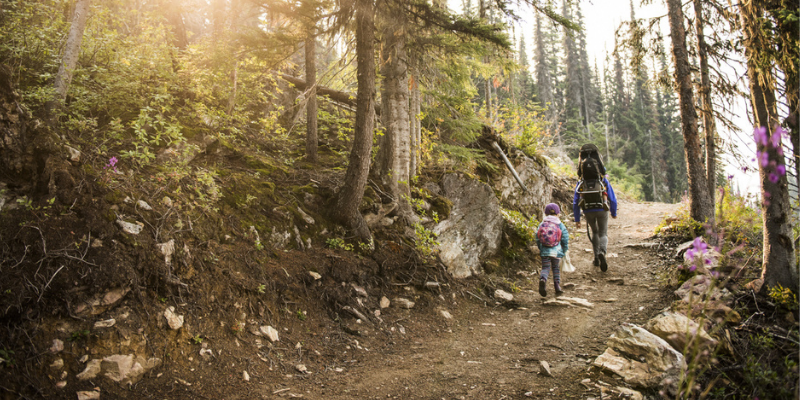It takes a community: the minister
Story Series: It takes a community
In a time when trails, roads, campgrounds, rivers and lakes are busier than ever, it’s important to remember that it takes a community to make fun possible. This story is part of a series of profiles on the people who work behind the scenes in B.C., so you can have that special moment today.
Like most parents, Nathan Cullen sees the impact of video games, streaming TV, social media and the internet on young people.
“I look at my kids and I know the distraction, temptation and addiction of screen time,” he says.
As the Minister of State for Lands and Natural Resource Operations, Cullen is better positioned than most to do something about it. And he knows the antidote is not complicated.
“Get kids outside and let nature do its thing,” he says. “The moment you take them outside, they become different humans and better humans.”
Creating new programs to encourage just that is one of the many tasks sitting on Cullen’s desk. His position is part of the Ministry of Forests, Lands, Natural Resource Operations and Rural Development, which means he helps oversee many of the departments that approve, build, maintain and promote recreation. He also develops, adjusts and guides provincial policies and programs, which these days are dominated by new priorities and challenges created by the pandemic.
The boom in outdoor recreation has put Cullen’s ministry in the spotlight. It already worked with more than 400 clubs and advocacy groups, whose volunteers managed more than 30,000 kilometres of trails in the province, he says. To help with the impacts of the pandemic, his government committed $20-million to Rural Economic Recovery, much of which went to maintaining and building recreation infrastructure. The beefed-up Future Leaders Program, a provincial youth employment effort, includes more recreation-oriented projects and trail work. Now, Cullen is proposing programs to deepen the connection between time outside, recreation and schools.
As a veteran politician – 15 years as a federal Member of Parliament before being elected to the provincial legislature from the riding of Skeena-Bulkley Valley in 2020 – he recognizes these kinds of programs and policies will long outlast his time in government.
“When you involve young people in trail construction or maintenance or building a rec site, it’s not just about that one project,” he says. “You’re really creating a life-long advocate.”
He hopes for similar long term impacts to some of the other projects he’s working on, particularly how the ministry is serving its stakeholders.
“We’re reviewing what the government and the ministry needs to look like given our new reality,” he says. “There’s a lot of old legislation that does not reflect climate change, the United Nations Declaration on the Rights of Indigenous Peoples and the public’s expectation that they want a say in what is going on on the land.”
The first phase was a review of the ministry and whether it should be split in two, to better manage the complex nature of land use planning and indigenous rights and title, he says. A final decision rests with the premier. In the meantime, the province moved forward with amendments to the Forest and Range Practices Act, announced in October. By shifting to forest landscape plans, First Nations, communities and the public will have more awareness and control over harvesting plans, says Cullen, particularly with regard to cultural values and recreation opportunities.
“It’s the most significant transition of the forestry relationship in our lifetime and perhaps forever,” Cullen says. “The government in the past left it up to industry to manage itself. Communities and users would put a high value on area or trail, but had no say in the decisions about how the region was managed. The new legislation creates a fundamental shift from a private asset, managed to benefit shareholders of the forestry company, to a recognition that the shareholders are British Columbians.”
The change reflects a broader effort to return to more local involvement in all land use planning. Community input is key to managing and mitigating the conflicts and overuse seen in many recreation areas, Cullen says.
“We’ve lost our understanding of the values of people that live in these places,” he says. “Who we are, what we like, what we hope to leave behind.”
For the Minister that’s the most important knowledge of all.
Ryan Stuart started writing about his adventures as a way to get paid to play. Twenty years later he’s still at it. Look for his name in magazines like Outside, Men’s Journal, Ski Canada, online at Hakai and The Narwhal. When he’s not typing at his home office in Vancouver Island’s Comox Valley, you can find him skiing, hiking, mountain biking, surfing, paddling or fishing somewhere nearby.

